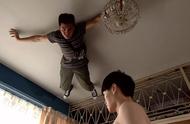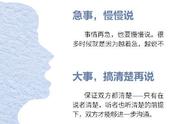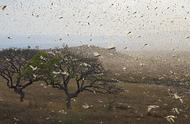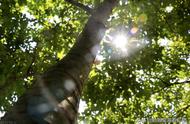UNIT 4 I Used To Be Afraid of the Dark
一、重点单词
1. humorous /ˈhjuːmərəs/ adj. 滑稽有趣的; 有幽默感的 sense of humor 幽默感
2. silent /ˈsaɪlənt adj. 不说话的; 沉默的;
3. helpful /ˈhelpfl/ adj. 有用的;有益的;
4. score /skɔː(r)/ n. (游戏或比赛中的)得分, 比分; (考试中的)分数, 成绩; v. 得(分),进(球)
5. interview /ˈɪntəvjuː/ n./v. 面试; 面谈; 采访
6. private /ˈpraɪvət/ adj. 私人的; 秘密的;
7. require /rɪˈkwaɪə(r)/ v. 需要; 依靠; 依赖
8. European /ˌjʊərəˈpiːən/ adj. 欧洲(人)的; n. 欧洲人
9. influence /ˈɪnfluəns/ n./v. 影响
10. absent /ˈæbsənt/ adj. 缺席的;不在的
11. general /ˈdʒenrəl adj. 总的; 普遍的; 常规的 n. 将军
12. introduction /ˌɪntrəˈdʌkʃn/ n. 介绍; 采用; 引进
二、重点短语
1. used to be 过去曾经是
2. used to do过去经常做
3. from time to time 有时
4. deal with 处理
5. in public 公开地
6. in person 亲自
7. 失败/未能做成某事 ① fail to do ②fail in doing
8. 为……感到自豪 ①be proud of
②take pride in
9. 担心 ①worry about
②be worried about
10. 不再 ①not ... any longer
②no longer
三、重要知识点
1. “used to” 的用法.
表示过去常常做某事, 只用于一般过去时时态,后接动词原形 .
used to的否定句、一般疑问句和反义疑问句常借助于did 来完成。
如: He didn’t use to come here.
他过去不常来这儿。
Did he use to come?
他过去常来这儿吗?
He used to come here, didn’t he?
他过去常来这儿,是吗?
2. alone 和lonely的区别
alone adj. & adv. 单独,独自一人。作形容词时,只能作表语,不放在名词前。
lonely adj. 孤独的,寂寞的。用作表语或定语。
e.g., Her parents were not at home, so she was alone.
The old man lives alone, but he doesn’t feel lonely.
( A )① Though he is ______ at home, he doesn’t feel ______ for he has many things to do.
A. alone; lonely B. lonely; alone
C. alone; alone D. lonely; lonely
3. “数词-名词-形容词”的复合形容词用法
(1) “a 15-year-old boy”表示 “一个15岁的男孩”,其用法注意两点:①中间的两个连字符不可省略,② 名词必须用单数。
(2) “16-year-olds”表示 “16岁的孩子们”, 相当于“16-year-old kids”.
( C )① I don’t believe that this ______ girl can paint such a nice picture.
A. five years old B. five-years-old
C. five-year-old D. five year old
( A ) ②A new study proves a _______ walk every day is enough to keep people from being fat.
A. 30-minute B.30 minutes’ C.30-minutes 4. no longer, not……any longer, no more, not……any more的区别
(1) 这四个短语都可以表示“不再……”, 其中not……any longer, not……any more的not经常与助、系、情动词搭配形成缩略词。any more也可以写作anymore。
e.g., I don’t work here any more. (= I no longer work here.)
我不在这里工作了。
We couldn’t stand it anymore. 我们不能再忍受了。
He still smoked, but he drank no more. 他还在抽烟, 但不再喝酒了。
(2)“not…any longer”侧重与时间和状态, “not…any more”侧重于程度和 数量。
e.g., I’m not a student any longer. 强调不再是个学生了。
You can’t drink anymore.
强调喝酒的量到了一定程度,不能再继续下去了。
5. “What’s …like” 和 “What does…look like”的区别
① What’s sb. like ? “……是什么样的人?”
多用于提问人的性格、品质等,也可用于提问人的相貌。
--- What’s Alice like ?
--- She is quiet and a little shy.
② What does sb. look like? 意为“…..长得什么样?”, 用来提问人的长相, 外貌。
--- What does Tom look like?
--- He has short hair.
6. dare的用法
dare表示 “敢于, 胆敢”,它既可用作实义动词,又可作情态动词。
①作情态动词时, 后接动词原形。通常只用于否定句或疑问句以及if或whether之后一般不用于肯定句。
e.g., Dare you tell her the truth? 你敢告诉她事实真相吗?
I don’t know whether he dare try. 我不知他是否敢试一试。
②作实义动词时, 有人称、单复数及时态的变化, 可用于各类句型(肯定句、否定句、 疑问句及各类从句等),常用结构dare to do sth. 在否定句或疑问句中to经常被省略。
e.g., He dares to go to Africa alone. 他敢独自去非洲。
We don’t dare (to) say anything. 我们什么也不敢说。
【即学即用】适当形式填空
① We must dare ____to think______, speak and act. (think)
② How did you dare ___to_tell______ her about that? (tell)
四、练习
( A ) 1. My mother used _______ breakfast for me every morning, but now I do it myself.
A. to make B. to making C. making D. made
( B ) 2. Confucius (孔子) is also very famous in many Western countries because he taught people to be _______ to others first.
A. similar B. kind C. important D. difficult
( B ) 3. Please keep _______ when you are taking an exam.
A. silence B. silent C. sight D. service
( A ) 4. The poor girl _______ have to worry her life _______.
A. doesn’t; anymore B. not; anymore
C. no; longer D. doesn’t; any long
( D ) 5. Lucy is my best friend, and I come to visit her _______.
A. from now on B. yesterday
C. from then on D. from time to time
( D ) 6. David has a big problem and he doesn’t know how to _______ it.
A. catch up with B. go along with C. talk with D. deal with
( D ) 7. He is a famous writer, and he is a man of great _______.
A. influenced B. influences C. influencing D. influence
( D ) 8. --- Mario is often _______from the school.
--- That’s why he failed the exam.
A. run away B. present C. lonely D. absent
( D ) 9. --- How does Jack usually go to work?
--- He _______ drive a car, but now he _______ there to lose weight.
A. used to; is used to walk B. was used to; is used to walking
C. was used to; is used to walk D. used to; is used to walking
( D ) 10. --- Excuse me, could you tell me _______?
--- Certainly. Take the No. 108 bus.
A. which bus should I take B. I should take which bus
C. should I take which bus D. which bus I should take
,














